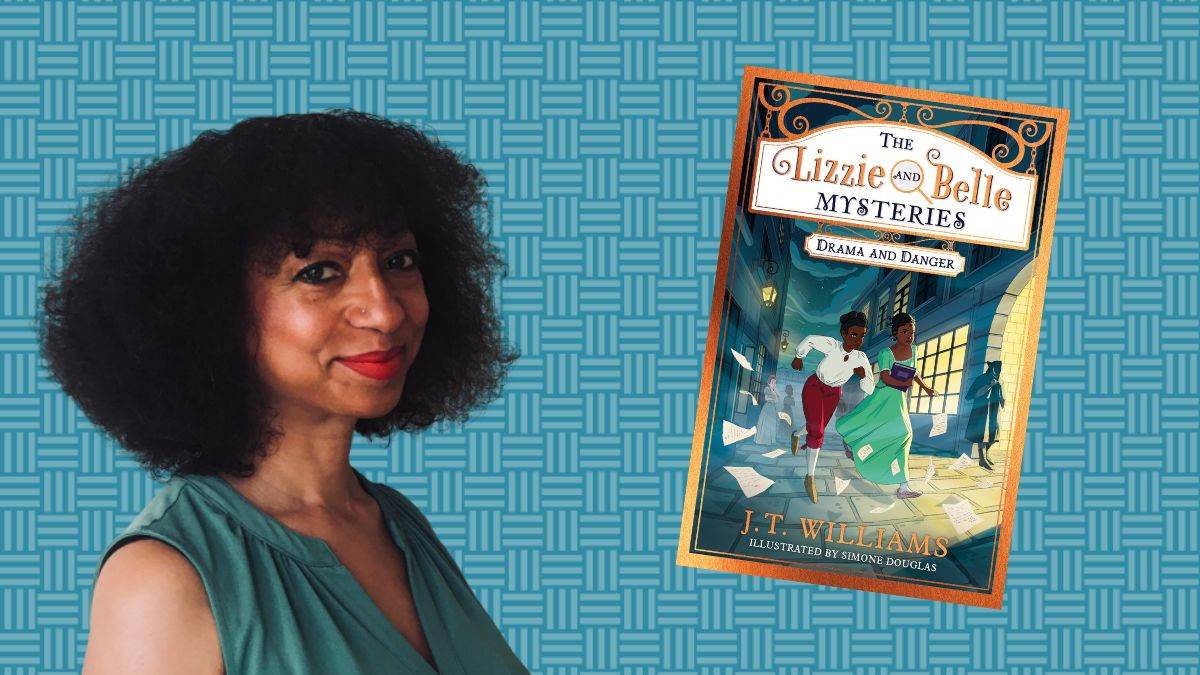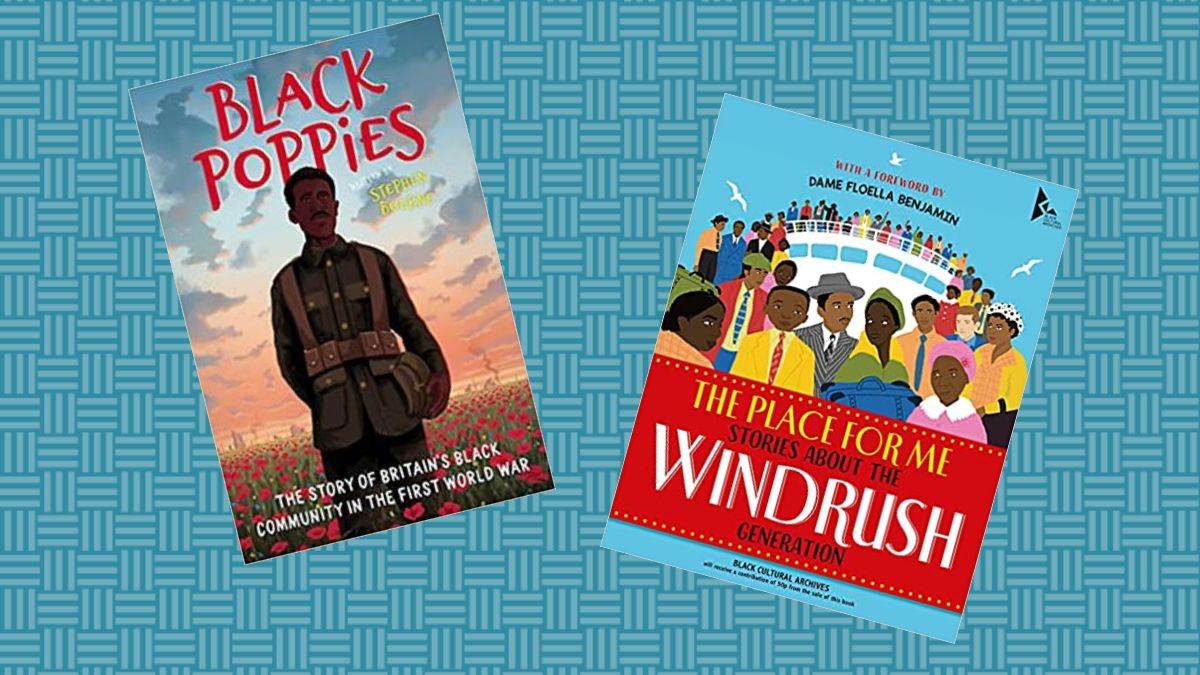How fiction can open up pathways into Black British History
Published on: 17 May 2023
Author JT Williams shares how books can offer a window into Black British history

I’m a Londoner, born and bred. Britain is the only home I’ve ever known.
My mother, on the other hand, was a Sierra Leonean Krio woman. She came here from Freetown in 1960 – a British ‘subject’ – and met my English father several years later. A few years after that, I was born.
I was a curious child, a lover of reading from a very young age.
I lost myself in the worlds that books opened up for me, but as a young Black girl, I rarely found myself there. It was American literature that introduced me to stories of Black girlhood. It all began with The Friends. Rosa Guy’s powerful story about the friendship that develops between Edith Jackson and Phyllisia Cathy in 1970s New York held me captivated.
But it was as a mother and a teacher that I discovered books that explored and celebrated the lives of Black British children. Authors such as Catherine Johnson, Malorie Blackman, Patrice Lawrence and Emma Norry have changed the landscape of children’s fiction by centring Black British children, past and present. Their books act as marvellous mirrors for the children who see themselves reflected there; wondrous windows for the children who see their friends, neighbours and fellow citizens.
Meanwhile, the Reflecting Realities reports published by CLPE, and BookTrust’s own research into the experiences of Black and Brown writers are pushing forward conversations about who gets to see themselves in children’s books. But we need to ensure that representation is improved across all genres of literature.
Fascinating stories hidden in history

I wrote The Lizzie and Belle Mysteries because I wanted to see Black girl magic in historical fiction.
For me, history is key. We know, for example, that Black people have lived in Britain for centuries. We have a history here, a collective back story. For African and Caribbean children who have not had the opportunity to see themselves in British history books, access to books that illuminate Black lives in Britain across the centuries is crucial.
The word ‘Sankofa’, a Twi word from the Akan people of Ghana, means, ‘Go back and retrieve it.’ In other words, to move forward, you have to know your past.
Of course, it’s important for all children to learn about the lives of Black people for whom Britain was home all those years ago. Factual books by historians like Hakim Adi (The History of the African and Caribbean Communities in Britain) and David Olusoga (Black and British: A Short, Essential History and Black and British: An Illustrated History) bring these fascinating histories to a young audience. Stephen Bourne’s Black Poppies celebrates the lives and contributions of Black soldiers to World War One. K.N. Chimbiri’s books spotlight the histories of Black hair, Black airmen, and the Windrush. These books can instil a precious sense of pride for Black children, while illuminating valuable shared histories for us all.
But what role can fiction play in creating pathways into these histories?
Stepping into the past with Lizzie and Belle
Over the years, my own research has revealed fascinating facts about the Black past. From the moment I discovered that Georgian London was home to around fifteen thousand Black people, I had to know more. I learnt about how African people sent here from America and the Caribbean made lives for themselves all over the city. I learnt about mothers and fathers, sisters and brothers, rebels and runaways, musicians, writers, sailors and abolitionists who came together in community to fight for freedom and to support one another while living in the shadow of Transatlantic Slavery.
When I learned about the extraordinary life stories of Ignatius Sancho and his family, and Dido Belle, I had to immortalise them in fiction.
Empathy comes through personal connection. And personal connection is created by compelling stories, spearheaded by engaging characters. Through The Lizzie and Belle Mysteries I decided to bring those communities to life for young readers: to shine a light on these inspiring Black figures and invite readers to investigate this history for themselves, while getting up close and personal.
How do people ensure their own stories are told? In history books, we rarely hear the stories or voices of Black women, much less the voices of young Black girls. In Lizzie and Belle, I have placed two bold and brilliant Black British heroines centre stage to tell the story from their own perspectives. Having the girls tell their own stories speaks to the importance of our sense of personal identity, our need to feel represented.
The real Lizzie Sancho grew up in her family’s busy tea shop in the heart of Westminster. I was thrilled to read about the Sancho family in father Ignatius’ energetic letters, which abound with love for his wife and children. This is a strong, tight Black family living on the site of what is now, ironically, the Foreign and Commonwealth Office.
Dido Belle, on the other hand, was raised as a gentlewoman in an aristocratic family, the only Black family member in the household. Growing up in a large mansion on the edge of Hampstead Heath, she had more books for company than people. Belle reminds us that books are a crucial research resource!
As the girls work together to solve the cases, they discover difficult truths about Black life in Georgian London; the dangers people faced, the struggles to assert their equality. But they also uncover the ways in which people resisted, rebelled and rose up. Even in day-to-day life, Black people found joy. They found ways to survive and thrive, to live, love and laugh together. These positive stories have, in some ways, been lost to the past. But if we look carefully, like detectives, we can find their traces.
By piecing together fragments of evidence, and by taking advantage of the growing canon of wonderful books on Black British history, we can build a fuller picture of that shared past.
What better way to move forward into our shared future?
The Lizzie and Belle Mysteries series is available now.
Topics: Historical, Diversity (BAME), Features





